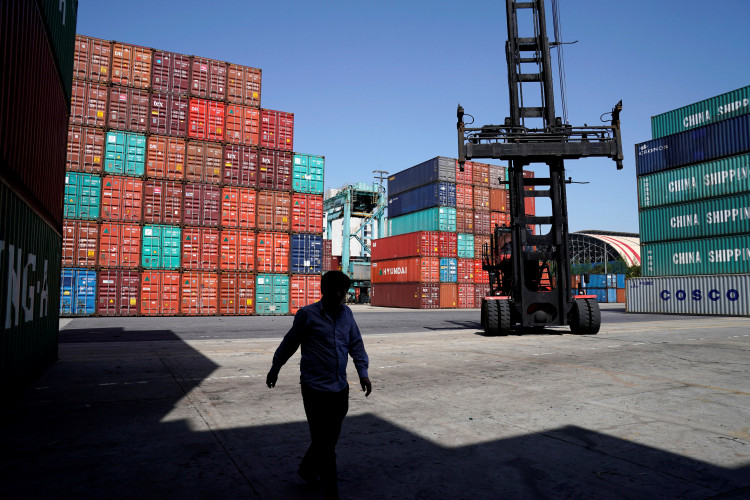With the 2020 U.S. presidential election only 15 months away, China will keep fending-off President Donald Trump's increasingly frantic calls for a deal to end the trade war against China he started.
Analysts say China has absolutely no interest in gifting Trump with a deal that will end his trade war, and in the process help to get him re-elected.
"China, very clearly, is trying to wait out the U.S. election cycle with the hope that maybe we get somebody different in the White House," said Eric Robertsen, head of the global macro strategy and global head of foreign exchange, rates and credit research at Standard Chartered Bank.
And even were Trump to win (which current polls say he won't) he'd have every incentive to end his trade war on terms also favorable to China or else risk stoking the chances of an economic recession.
Robertsen said Trump's "No. 1 priority" is to get reelected in 2020, and China is trying to wait out the American election cycle.
He also said China can hold out longer than Trump in the ongoing bilateral trade dispute because it doesn't have to contend with a presidential election.
"In terms of time frame, I would argue China has greater pain tolerance," he pointed out.
Robertsen said China will likely use fiscal instead of monetary stimulus to bolster its sagging domestic economy. He noted the People's Bank of China (PBOC) didn't cut interest rates in the wake of the U.S. Federal Reserve's latest interest rate cut on July 31.
Robertsen believes this move likely illlustrates China wants a stable currency to attract capital to its onshore markets.
The added pain to be inflicted on China by Trump's new 10% tariffs on another $300 billion of Chinese goods beginning Sept. 1 is also another disincentive for China giving Trump the trade deal he wants before November 2020.
Some U.S. analysts contend this latest levy is now more of a danger to the U.S. than to China.
"It's obviously a very hard-line tactic but I think it's ... a sword at the throat of the American economy more than the Chinese economy" said Andrew Collier, managing director of Orient Capital Research.
Collier said Trump's latest move leaves the U.S. economy in a situation where it could "get hit the big time."
"We're looking at a fairly significant weakness ... within the U.S., so I don't quite know what Trump's expecting to do here," he said
His sentiment was echoed by other experts, including Corrine Png, regional head of equities research at AIA Investment Management, who blasted Trump's move as "actually quite counterproductive."
She said the additional 10% tariffs "actually hurts the U.S. consumers more than China" because it mostly targets consumer-related products such as laptops, mobile phones, digital gadgets, and toys.
Their conclusions run counter to assertions by Larry Kudlow, White House economic advisor, who told CNBC that because of Trump's tariffs, "The Chinese economy is crumbling. It's just not the powerhouse it was 20 years ago."
Kudlow cited statistics to prove his point.
He said China reported its economy grew 6.2% in the second quarter, its weakest GDP growth rate in at least 27 years. Chinese stocks are taking hits. The Shanghai Composite index of stocks has fallen more than 15% from its high in 2018.






